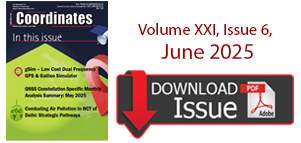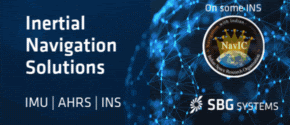| GNSS | |
Will GALILEO happen?
|
DR GUENTER HEINRICHS, MIGUEL ROMAY MERINO, JIM DOHERTY, F MICHAEL SWIEK, RONALD R HATCH |
||||||||||||
Roadblocks, primarily of a political natureRonald R. Hatch It will be difficult to reach agreements with all of the states, businesses and organizations involved. However, I believe that too much has been accomplished and the goal too important to the European community to allow it to falter. The prestige of building the system and the dependence upon a foreign system of navigation otherwise, both argue for a continuation of Galileo. The European public also favors a continuation according to surveys. Yes, it will be delayed, but I think the system will be built. Technically, Galileo has much to offer. Receivers that will track both GPS and Galileo signals are easily built. With two common frequencies at L1 and L5/E5A the diversity of signals will allow operation of high precision receivers in much more restricted environments. In addition, for very high precision RTK implementations the third frequency on both the next generation GPS satellites and the Galileo satellites will dramatically improve the ability to resolve the whole cycle of carrier phase ambiguity. Though the middle frequency is not common, the Galileo E6 signal is actually a better choice than the GPS L2 signal for ease in simultaneously resolving ionospheric effects and determining the whole cycle ambiguities. Again, it would be a great disappointment if Galileo does not happen. |
||||||||||||
|












 (No Ratings Yet)
(No Ratings Yet)





